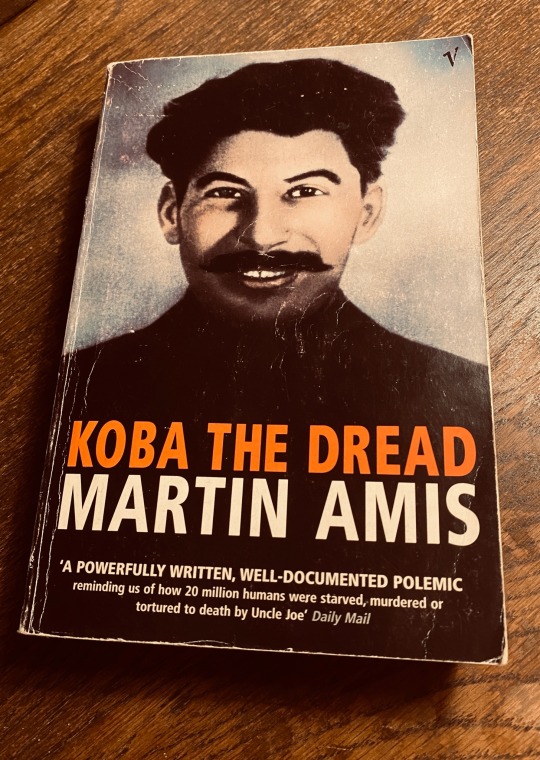#koba the dread
Text
Famine belongs to the Communist tetrarchy — the other three elements being terror, slavery and, of course, failure, monotonous and incorrigible failure.
— Martin Amis, from Koba the Dread: Laughter and the Twenty Million
52 notes
·
View notes
Text
⠀⠀⠀⠀⠀ ⠀ ⠀⠀⠀can't sleep
⠀⠀⠀⠀⠀ ⠀ ⠀⠀⠀⠀⠀⠀&
⠀⠀buying groceries/ bathing with the pups
⠀⠀pairings : trent alexander-arnold , reader
⠀⠀a/n : enjoy
it was night, precisely 12 am. You should be asleep by now. you looked to the side of you and saw your boyfriend trent, who was currently sleeping. not wanting to wake him up, you lift up the sheets slightly and slid out your bed. you stood up and looked at your surroundings. you cringed due to what transpired last time.
torrential rain hushed your sounds a bit. you went over to the supply closet, opened it briskly, watching the others movement and grabbed a spare blanket. you tip-toed (literally) to the bedroom door. as you opened it it creaked, you felt like a child trying to avoid getting caught by your parents.
closing the door, you exhaled and went over to the kitchen, opened the cabinets getting dog treats, knowing that the dogs are once again notoriously loud. so you decide to bribe them with treats to get your compensation for silence. you went to the living and saw prince and koba awake, both staring at you. they were playing until you interrupted them.
“good doggies” you whispered, attempting to pick up the dogs to let them relax with you as they got high on treats. you plopped them both onto the couch and went back to retrieve your ipad.
entering the bedroom again, you look at trent, who’s dreads are spread out everywhere on the pillow, that beautiful pout of his, his black t-shirt that’s lifted up slightly showing some of his skin, that t-shirt brings out his skin complexion marvelously , the elevation of his chest as he breathes. the moonlight emitting on his skin, bringing it out more. he looks tranquil, just his presence gives you consolation.
you could stand there and just watch him sleep peacefully (woah, calm down there) or, you can get your ipad and get the hell out of here before he wakes up and asks you why you’re staring at him whilst he’s asleep, and you’d just admit to his beauty, because he actually is beautiful but you don’t want to admit it because then he’ll tease you for it.
you got your ipad and rushed on your way out, bumping you toe on the corner of the bedstand, you suppressed a cry of pain and limped your way out of the room.
now back in the living room you saw that both of the dogs were asleep, feeling relieved you slumped back on the couch and watched outer banks for the time being.
a few episodes later, it was now 2:00 am. you were so engrossed in the series you lost track of time, yet you didn’t care. you shrugged it off and continued the series. now, reaching 3 a.m. you heard footsteps approaching you, in lieu of getting up, you just stayed there. not paying any mind to it.
You looked up and saw trent, staring at you with puffy doe eyes and a pout. He looked like he'd just woken up. He didn’t say anything, just stared at you, after a while his eyes flickered to your device. He slumped back onto the couch with you. His head on your shoulder.
"so, whats wrong?”
"can't sleep" you said quietly, feeling the other turn his head, stubble grazing your shoulder. you heard faint snores from him.
"if you need to sleep, you can go to bed."
"only if you come with me."
you sighed, looking at his sleepy eyes. "sure, let's go"
you had to held his hand while going to bed.he pushed you closer towards him, your face meeting his neck. his hands wrapping around your abdomen.
"good night" and you drifted off to sleep.
/
TRENT ❤ 12:20 pm
hey babe, do me a favor and head to the grocery store after please?⠀⠀⠀⠀⠀ ⠀ ⠀⠀⠀⠀⠀⠀
⠀⠀⠀⠀ ⠀ ⠀⠀⠀⠀⠀⠀⠀ ⠀ ⠀⠀ Y/N ❤🤡 12:40 pm
⠀⠀⠀⠀⠀ ⠀ ⠀⠀⠀⠀⠀⠀⠀ ⠀⠀yes. what do you need?
TRENT ❤️ 12:55 pm
eggs, milk, ice pops, ice cream, kinetica protein powder VANILLA, strawberries , blueberries, mango, and for dinner I need spaghetti, alfredo sauce and chicken.
⠀⠀⠀⠀⠀ ⠀ ⠀⠀⠀⠀⠀⠀⠀ ⠀⠀⠀⠀ Y/N 🤡❤️ 1:00 pm
⠀⠀⠀⠀⠀ ⠀ ⠀⠀let me know if you want to buy the ⠀⠀⠀⠀⠀ ⠀ ⠀⠀⠀⠀⠀⠀⠀ ⠀ ⠀⠀whole store too👍
TRENT ❤️ 1:01 pm
i wasn't finished, so— juice, naked (drink), grapes, raspberries, yogurt, cottage cheese and pineapple. thank you love.
⠀⠀⠀⠀⠀⠀ ⠀ ⠀⠀⠀⠀⠀⠀⠀ ⠀ ⠀⠀Y/N 🤡❤️ 1:10 pm
⠀⠀⠀⠀⠀ ⠀ ⠀⠀⠀⠀i'm assuming you're going to ⠀⠀⠀⠀⠀⠀⠀⠀⠀⠀⠀⠀give me the money for this
⠀⠀⠀⠀⠀ ⠀ ⠀⠀⠀⠀⠀⠀⠀ ⠀ ⠀⠀⠀⠀⠀⠀⠀ ⠀ ⠀⠀hello?⠀⠀⠀⠀⠀ ⠀ ⠀⠀⠀⠀⠀⠀⠀ ⠀ ⠀⠀⠀⠀⠀⠀⠀ ⠀ ⠀⠀trent.
⠀⠀⠀⠀⠀ ⠀ ⠀⠀⠀⠀⠀⠀⠀ ⠀ ⠀⠀⠀⠀⠀⠀⠀ ⠀⠀read at 1:13
⠀⠀⠀⠀⠀ ⠀ ⠀⠀⠀⠀⠀─────
you pushed your phone back into your pocket as you headed to get a shopping cart.
after wandering around some time you went to the food section, pulled out your phone again, reviewing the "list" trent gave you. you headed towards the fruit aisle.
grabbed, pinenapple, raspberries, blueberries. you weren't a food expert so you just grabbed and went.
"alrighty.." you grabbed a bag and placed 7 mangoes in, and put it with the rest of your groceries.
/
heading home, you exited the car and unlocked the door, coming right back out to deliver these groceries to your "househusband".
you almost fell due to the amount of groceries, but labor is pain. when you were done you yelled out trent's name, the other appeared from the bedroom.
"here, let me help" he said grabbing some of the bags to place on the island counter, rummaging through them as you placed the other bags on the counter aswell.
"y/n..."
"yea?"
"did you remember to buy the spaghetti?"
you froze, trying to reminisce if you bought it.you didn't. there's no point of lying so you had to be solemn.
"how do you— nevermind, that's fine, we'll manage. thanks for buying these, i owe you one." he placed a kiss on your head and started putting the groceries in their place.
"oh yea, if you go again to the store, buy dog treats again. they're suddenly gone even though i just had bought it a week ago." trent said putting the berries away
your jaw went slack, reminiscing that you fed the dogs treats. but, you can't remember how much. you turned your head swiftly looking at the 2 pups, koba, trying to catch his tail. prince playing with some random toy.
you shrugged it off and went to the living room with the dogs. what he doesn't know won't kill him.
/
it was 9 in the afternoon, you were standing I front of the bed, with trent laying on it of course. but, your attention wasn't on him, it was on the bed actually.
"we need a new bedstand"
"and why's that?"
"because i detest this one. do you know how many times i've stubbed my toe on it. it's like it's out for me!" you exclaimed
"maybe it's time to just wear slippers when exiting out the bed, love."
you narrowed your eyes at him, "no, maybe it's time for a new bedstand, love."
"alright, I think you should come to bed—"trent was interrupted once again by a dirty, muddy koba followed by a dirty prince bursting through the door and immediately jumping onto the bed causing havoc.
they both attacked trent leaving wet, sloppy, and hot kisses on his face. the other seemed disgusted, especially because of how dirty they were. you laughed, enjoying it.
"fuckkk.. i just took a shower" trent got up, dogs still surrounding him. he was now dirty himself.
you picked them both up, "i think it's time for a bath yea?" "you need one to aswell, trent" you giggled and made your way to the bathroom.
you went back into the bathroom, seeing trent in the tub with the dogs. (totally normal?)
"sorry babe but you're going to smell like dog shampoo" you say smiling (i know dog shampoo isn't good for humans 'cause of pH levels and stuff but let's pretend it is for my sake)
trent gave you a side eye as prince was trying to climb up his head. "you're enjoying this completely aren't you?"
"yea. very." you laughed as you scrubbed koba with shampoo. "we should buy them nail caps just for indoors, y'know." trent says as he's holding prince up in the air, analyzing his paws.
"sure, we should buy that with the bedstand that we are going to buy."
"wait, what?"
⠀⠀⠀⠀⠀ ⠀ ⠀⠀⠀⠀──────

#06605#@kyvluve for the header#football imagine#football imagines#trent alexander arnold x reader#trent alexander imagines#trent alexander arnold#trent x reader#trent aa#trent alexander x you
294 notes
·
View notes
Photo
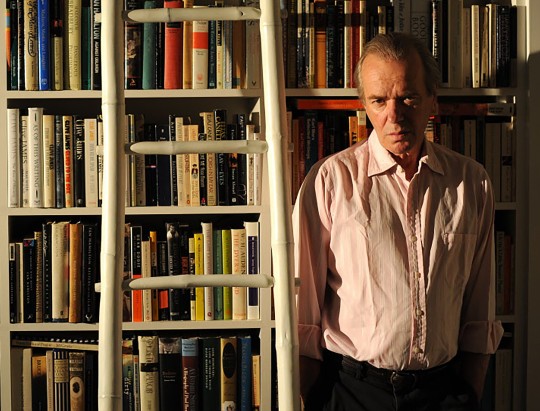
The writer Martin Amis, who has died aged 73, delighted, provoked, inspired and outraged readers of his fiction, reportage and memoirs across a literary career that set off like a rocket and went on to dazzle, streak and burn for almost 50 years. His scintillating verbal artistry, satirical audacity and sheer imaginative verve at every level from word-choice to plot-shape announced a blazing, once-in-a-generation talent.
He seldom disagreed with Christopher Hitchens, the journalist and essayist who was his soulmate and intellectual lodestar. But when Hitchens published a tepid review of a book by the American novelist Saul Bellow – Amis’s literary idol and mentor, who ranked equally high in his affections – Amis rebuked his friend for ignoring “all the pleasure he gave you”. Amis stirred envy and emulation, ignited controversy, courted scandal. Above all, though, he gave pleasure.
He paid tribute to his father, the novelist Kingsley Amis, by praising his “super-humour: the great engine of his comedy”. However grave its themes – later years saw him preoccupied with losses, partings, and deaths – “super-humour” likewise fuelled the zest of Amis junior’s prose. For him, “seriousness – and morality, and indeed sanity – cannot exist without humour”. His gift of laughter followed him even into Auschwitz (in his 2014 novel The Zone of Interest). Critics could find its presence an embarrassment. Admirers never did.
He published 15 novels, from The Rachel Papers in 1973 to the hybrid Inside Story – which enfolds fiction into memoirs and essays – in 2020. His essays and journalism stretch from an account of arcade video games, through literary studies and critiques of pop culture, to a meditation on Stalin’s crimes: Koba the Dread (2002).
Until a quieter last decade, spent largely in New York, he combined fertility and versatility with a reluctant role as a writer-celebrity who epitomised literary fame in an age of glitz, hype and frenzied prurience. Keystone novels of the 1980s and 90s such as Money, London Fields and The Information channel the raucous urges of their time, and kick against them in dismay.
To a degree, he played the celebrity game: he dissected showbiz phenomena in witty articles, often for the Observer. But he found, in his case, that others played with laxer rules or none at all. For decades, the life, loves and family of a gossip-fed tabloid entity known as “Martin Amis” ran in parallel with the career of the hard-working author of that name. His fiction abounds in games of doubles, pairs and twins. In his own life, too, Amis struggled to negotiate the gap between the mask forged by fame and the true face of a serious writer.
Being the son of Kingsley might have sent him early warnings of the bill that a stellar career in literature can present. Martin was born in Oxford a year after his brother, Philip. His mother was Hilly (Hilary, nee Bardwell), whom Kingsley had met while she was studying at the Ruskin School of Art. Their third child, Sally, followed in 1954.
Hilly recalled the young Martin, bright and amiable, as “a child born under a lucky star”. The spectacular success of Kingsley’s debut, Lucky Jim (1954), brought prosperity but torpedoed family life. Kingsley’s many affairs, and his mother’s distress, became the background hum of Martin’s youth.
As his renown grew, Kingsley moved with his family to Princeton, New Jersey, for a year. Martin loved America: its speech rhythms rooted in his prose. In England, his father’s best friend – the melancholic poet Philip Larkin – supplied not only paltry gifts of a few pence to Martin, but a dire example of literary greatness allied to emotional squalor. The siblings spent happier times with their cousins, David and Lucy Partington. Lucy’s vanishing in 1973, and the final confirmation more than 20 years later of her murder by the serial killer Fred West, spread an ineradicable shadow over Amis’s later writing.
In 1961, Kingsley took up a teaching fellowship at Peterhouse, Cambridge. A rambling house on the city’s edge served as the rules-free, bohemian backdrop to the shipwreck of the Amis marriage. It ended in 1963 when Hilly moved to Mallorca while Kingsley began living with his lover, the novelist Elizabeth Jane Howard. Disharmony at home disrupted Martin’s education: he bounced idly from school to school. Relief came in the Caribbean when (for £50 per week) he acted in the film of Richard Hughes’s novel A High Wind in Jamaica.
As teenagers, Martin and Phil lived mostly in Maida Vale, west London, with Jane and Kingsley. They scoured Kings Road, Chelsea, for girls, and kept drugs in the fridge. Kingsley, lord of misrule, once bought his sons a gross of condoms. Jane, the much-admired “wicked stepmother”, finally presented the “semi-literate truant and waster” Martin with a reading list that ran from Jane Austen to Muriel Spark. She sent him to a Brighton crammer, where he thrived. Martin duly studied English at Exeter College, Oxford, with an “exhibition”: a scholarship, though of a minor kind.
After graduation, in 1971, he joined the Times Literary Supplement as an assistant, then as fiction editor. Starting with The Rachel Papers, his own apprentice fiction – smart, knowing, super-cool – flowed with little fuss. For Amis fils, “nothing is more ordinary to you than what your dad does all day”. In 1974, he moved from the TLS to the New Statesman: as deputy to the literary editor Claire Tomalin, then (until 1979), as books editor himself.
The Rachel Papers won a Somerset Maugham award. And the model for the “Rachel” fictionalised in his debut – his first love – introduced him to the Jewish themes that would draw him with increasing force. For a while, though, his fiction declined to grow up. Dead Babies (1975) performs stylistic somersaults around a country-house parody, although the warring foster-brothers of Success (1978) inaugurate the trademark Amis play of pairs.
Two sides of the Amis myth, or mask, solidified. With male chums – always Hitchens, often the poets James Fenton, Ian Hamilton and Clive James, or the novelists Julian Barnes and Ian McEwan – he adorned a sort of kebab-and-chips literary salon. They derided the old guard and lauded brave new voices. Yet Kingsley, old guard incarnate, remained an always honoured guest. Amis’s deep affection for his father, despite political and artistic clashes (Kingsley scorned his boy’s fancy technique, and reputedly chucked Money across the room), surprised and impressed their friends.
Like his father, Amis also picked up a reputation as an eager if inconstant lover. By his own account, he was a slow starter until the future magazine editor Tina Brown “rode into town and rescued me from Larkinland”. Soon, columnists began to chronicle – or fantasise – the romantic life of this literary wunderkind. Tomalin herself, Brown, Emma Soames, Julie Kavanagh: his liaisons with high-achieving women were mediated by salacious reporting, attracted awestruck gazes but also evil eyes. (His longest early relationship, with the photographer Angela Gorgas, left fewer media traces.)
Too short, too clever, too entitled, too rich: Amis became the author-ogre many loved to hate. Even his father remonstrated to Larkin when, in 1978, the son earned £38,000: “Little shit. 29, he is. Little shit.” Yet companions from that time recall no sneery seducer but a sweet, funny, sympathetic friend.
Come the early 80s, Amis as writer moved into higher gears. Other People (1981) heralded a mature interest in other minds and how to represent them. In 1984, the pyrotechnic satire and narrative trickery of the sensational Money both skewered an era of greed and glitz and, typically, embodied its appeal in the razzle-dazzle of its prose. The golden boy shone with a deeper lustre. His presence on Granta magazine’s 1983 roll-call of Best of Young British Novelists sealed his position on the crest of a new, media-savvy and PR-friendly, literary wave.
Also in 1984, the writer who had fretted that “childlessness will condemn you to childishness” married the American-born academic Antonia Phillips. Their son Louis arrived the same year, followed in 1986 by Jacob. With parenthood came an investment in the planet’s fate expressed in the bomb-shadowed stories of Einstein’s Monsters (1987), and the apocalyptic weather that roils around the large-scale comic dystopia of London Fields (1989). That book’s doomed antiheroine, Nicola Six, focused criticism of Amis as a serial fabricator of stereotypically damaged femmes fatales. The complaint, and the grounds for it, would persist.
At the same time, the comic craft that forged that novel’s darts-obsessed low-life Keith Talent could still make readers fall off their chairs with laughter. Visitors to the Amis work-flat in Westbourne Park loved to report on the blockish impedimenta of dartboard and pinball machine. Fewer clocked the neat editions of Bellow and Nabokov, twin touchstones of his art, on the shelves. The Holocaust motif and reverse narration of Time’s Arrow (1991) – shortlisted for the Booker prize – spoke of lofty formal ambitions, not laddish fun.
In journalism and fiction, Amis magnetised mimics and fan-boys (fewer girls) by the score. The essays gathered first in The War Against Cliché (2001) and, later, in 2017, The Rub of Time, recruited a tribe of wannabes – which rather missed their point. Hubris was ascribed to him, not espoused by him. Envious back-biters feasted on his every mishap or misstep.
The 90s saw his dental problems become a bizarre media fixation: he retaliated, gloriously, with the all-you-can-eat dentist-surgery horrors of his 2000 memoir Experience. Less reparable, his marriage broke up. He married Isabel Fonseca, an American-Uruguayan journalist and author, in 1996. Their daughters, Fernanda and Clio, were born in 1997 and 1999.
The media onslaught intensified with Amis’s most elaborate novel of doubles and rivals: the death-haunted, long-winded literary satire of The Information (1994). Its large advance drew sniper fire. So did Amis’s split from his agent Pat Kavanagh – and from her husband, Barnes – in favour of Andrew Wylie. Kingsley’s decline, after his parting from Jane, darkened his son’s horizons and turned Amis’s mind to “the information” (about mortality) that struck as a “negative eureka moment” in his 40s. What Amis called, after Kingsley’s death in 1995, the “passage to the main event” now suffused his work. He found death “always in my thoughts, like an unwanted song”.
In 2000, his sister, Sally, died, aged 46, after periods of depression and alcoholism. Griefs accumulated: the 1994 revelation of Lucy’s fate throws a pall over the superb Experience that wit can hardly lift. Still, in the mid-90s, Amis met his eldest child. Delilah was born in 1976 while her mother, Lamorna – who later killed herself – was married to the journalist-historian Patrick Seale. Larkin’s bleak emotional wilderness had terrified Amis. If anything, he overcompensated: so much life, so much love, but so much loss as well.
Amis, Isabel and their daughters set up home in London, at the other end of the Primrose Hill road where Kingsley had finally gone back to live with Hilly and her third husband. Post-millennium, his writing took a more political turn. Hitchens had always figured for Amis as the ideal type of the public intellectual. Now, the virtuoso storyteller – who identified as a centre-left gradualist – craved a slice of that gravitas himself. In Koba the Dread, Amis’s account of Stalin’s atrocities paid homage too to Kingsley and the ardent anti-communism of his circle: notably, the historian Robert Conquest.
It was 9/11 and its aftermath that propelled Amis into front-line polemics. Islamist terrorism revived a catastrophist strain in his work: the concept of entropy haunts earlier books. In the topical essays collected as The Second Plane in 2008, it threatened to elevate political foes into metaphysical demons. Rash interview statements prompted charges of Islamophobia. More soberly, Inside Story concludes that “the real danger of terrorism lies not in what it inflicts but what it provokes”. Still, the op-ed pundit Amis could drop his verbal, even moral, compass.
By the later 2000s, Amis began to look fragile, with the stiff gait of a veteran tennis player (he enjoyed the game, and wrote well on it). His mid-2000s fiction – Yellow Dog, House of Meetings – revisited old haunts: celebrity excess and tabloid depravity in the former; the lingering horror of Soviet atrocity in the latter. Calm spells with his family in seaside Uruguay raised spirits, as for a while did stints as a creative-writing professor at Manchester University.
With The Pregnant Widow (2010), his ambitions climbed again. Within its uproarious, comic-pastoral mode, the novel counts the costs of the sexual revolution that, for Amis, had devoured his vulnerable sister. To Amis, no longer a gleeful beneficiary of post-60s erotic liberation but its appalled historian, “the boys could just go on being boys. It was the girls who had to choose.”
In 2010, the Amis family began the process of moving from London to New York: Cobble Hill, Brooklyn. In Amis’s telling, the need to live near his elderly mother-in-law hastened the move. British media read it as a snub to his celebrity-mad homeland and its jeering fourth estate. Lionel Asbo (2012), with its scattergun satire on lottery-winning oiks in a plebeian nightmare, rather confirmed that view.
Amis enjoyed the Brooklyn weather, the freedom from spiteful gossip, his welcome on New York’s literary scene. But he missed British backchat: his west London patch, from the pub quiz-machines of Portobello Road to the sports clubs of Paddington, had served well as scruffy muse.
Thanks to Fonseca’s heritage, Amis now had Jewish daughters. Jewish histories, fears and hopes felt nearer than ever. Yet his concentration-camp novel The Zone of Interest affirmed that, for Amis, nothing stood beyond a joke. “How can you presume to laugh at Hitlerism?” asked a German critic. For Amis, how could he not? Any depiction of Nazi evil that overlooked its farcical absurdity lent it weight and credit it did not deserve.
His two wisest jokers had exited: Bellow, with dementia, in 2005; Hitchens, from cancer, in 2011. The loss of a virtual father and a virtual brother whetted fears of death but also (with Hitchens) sharpened the appetite for life: “the delight of sentience”. Kingsley had called a late novel The Anti-Death League, but Martin would never have signed up. “Without death there is no art,” he wrote. Bellow’s and Hitchens’s passing fed tremendous elegiac passages amid the multiform miscellany of Inside Story, where tricky “autofiction” sits beside heartfelt, no-frills memoir.
With its musings on “how busy death always is, and what great plans it has for us”, Inside Story felt like a valediction. If so, it was one in which Amis’s acrobatic wit defied both gravity and solemnity. He wrote with discipline and dedication, and wrestled with all the anguish of his age. Yet that pleasure-giving principle makes his long shelf of books feel playfully, buoyantly light.
He is survived by Isabel, and by his children, Delilah, Louis, Jacob, Fernanda and Clio.
🔔 Martin Louis Amis, writer, born 25 August 1949; died 19 May 2023
Daily inspiration. Discover more photos at http://justforbooks.tumblr.com
22 notes
·
View notes
Text
september reading
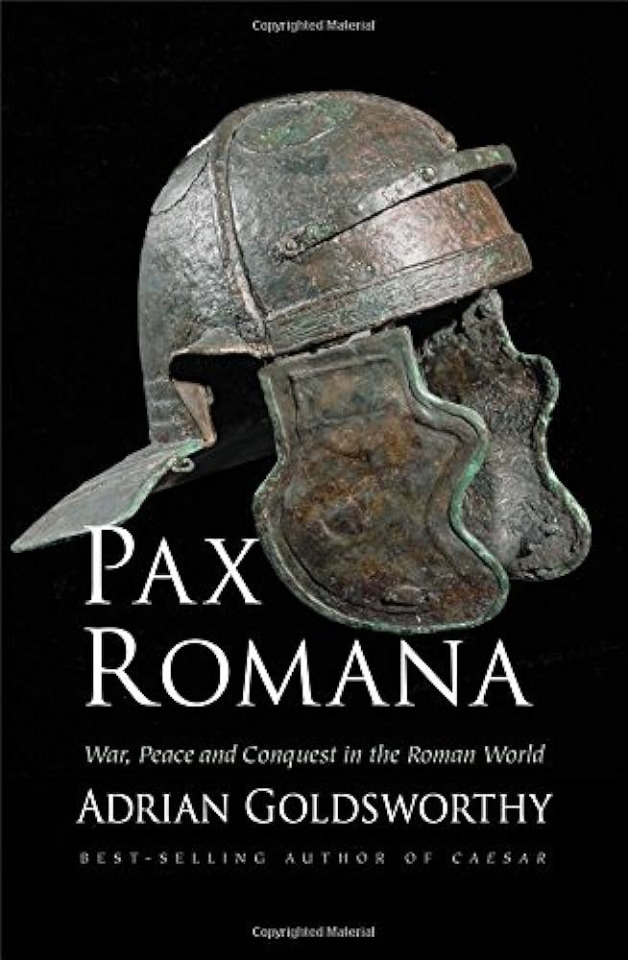
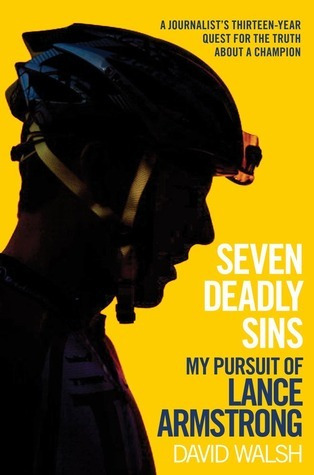

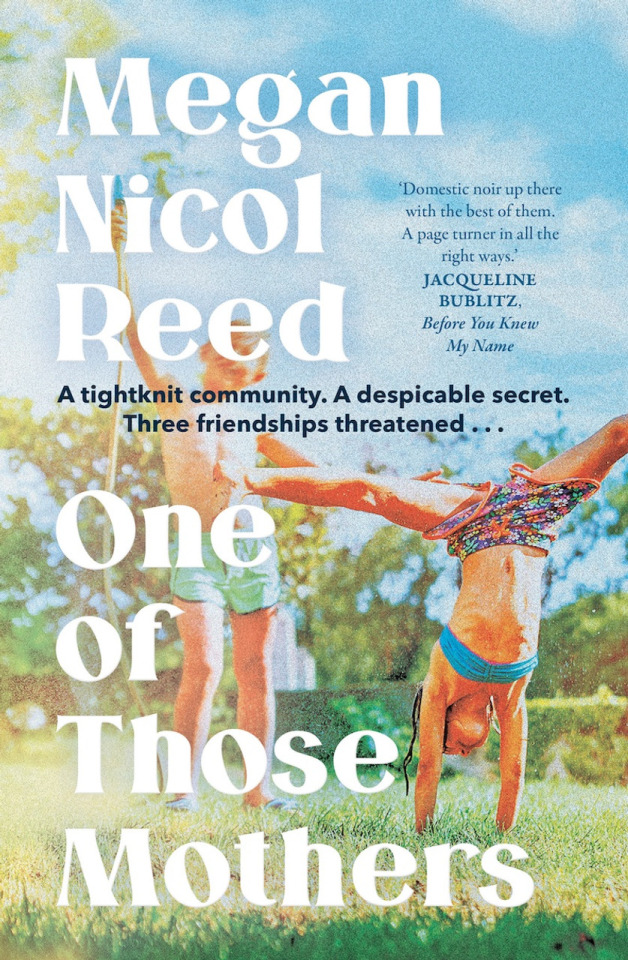

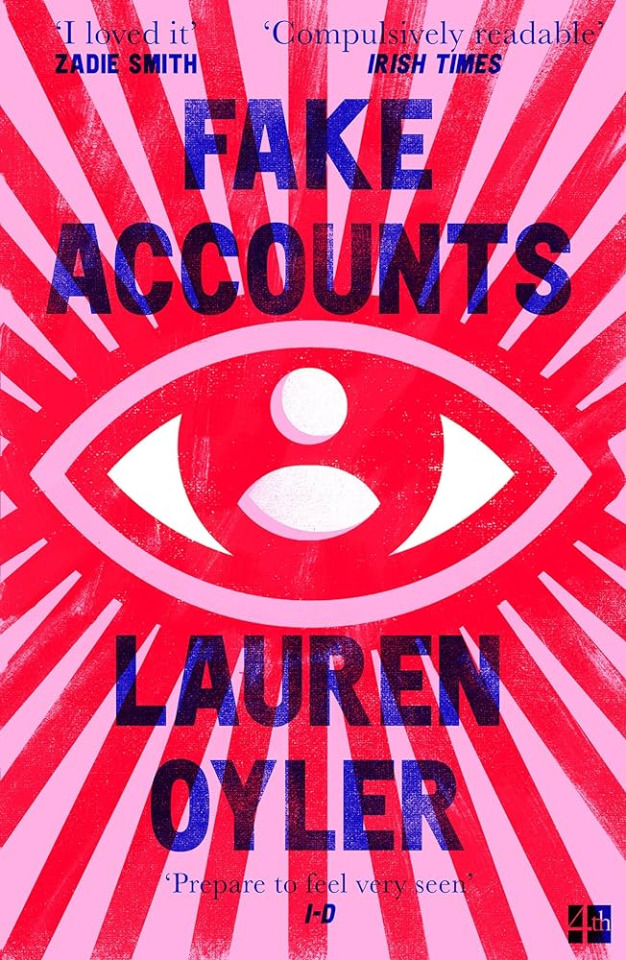
disclaimer when i say reading what i mean is that i Have Been Reading and may not have finished yet.
pax romana ★★★★
i got this as a gift for someone and liked it so much when reading that i went and downloaded an epub of it online for myself too. good gift for the classical studies student in your life. there is a glossy color page spread in the middle of it and many photos of sources 😍
seven deadly sins ★★★★
this book was easy to get into with my basic knowledge of the sport and an engaging read. i also go crazy for a 'seven deadly sins for seven wins'. some reviewers have pointed out that they heard way too much about walsh's own life in this book but i didn't have a problem (person who loved amis' koba the dread voice... yeah...) cheating in sports and the omerta of silence is an interest of mine.
a big enough god ★★★★
haven't finished reading this yet but we are off to a promising start! i'm always interested in reading seminal texts from the past century and see how well they hold up and what value they retain in the present (published in 1994).
one of those mothers ★★★
took it out as part of my library's two week bestie loan program. have to admit that i've been lacking in appreciation and reading of nz authors which is something that i am working to rectify... not much to say about this book other than that it is solid 3.5 stars for me. i had some issues with the way the dual timelines worked (the twists of the past timeline being revealed had me going 🤨 idk about that.... if that had happened 9 months ago!! i think i would still be thinking about that in my present timeline????) but overall this was a good book if you wanted to pick up and read something in one sitting. did have some fun with the author's crawl in the "gutters of the [white nz] middle class" too.
koba the dread ★★★★
rip martin amis sorry it took some great obituaries and thinkpieces written about you post mortem for me to decide that i should start reading you. fascinating book. if you hated walsh injecting in parts of his life into seven deadly sins you might not be able to enjoy this book either. however when your father is kingsley amis i think you definitely have a right to be injecting in stories of your relationship with him and life.
fake accounts ★★★★
i have not finished this book!! this and 'the list' were two books that i saw in store and had down on my tbr, so glad that i am making a start on it 🫡. oyler's long sentences and use of multiple clauses gives me hope for myself in the future. may we all have bright careers ahead of us.
#🥹 saw everyones tag game posts and was like its fine no one tagged me guess we will NEVER know what i read this month#and then i saw a mutual just did it anyways. thanks queen i too will be bravely going to the cinema alone
4 notes
·
View notes
Quote
Agamirov’s dead father was one of untold millions: Along with Adolf Hitler, Mao Tse Tung, and Pol Pot, Stalin was one of the twentieth century’s masters of mass murder. His body count, which includes not only those executed but those who died in the gulag and in the “terror-famine” in Ukraine and other parts of the USSR, is still disputed. The figure of 20 million was one point widely accepted and even reflected in the subtitle of Martin Amis’s eccentric and somewhat muddled but memorable 2003 book on Stalin, Koba the Dread: Laughter and the Twenty Million. (“Koba” was Stalin’s Georgian nickname.) More recently, Yale historian Timothy Snyder has asserted, based on archives opened after the fall of the Soviet Union, that the real figure is closer to 6 to 9 million. Others say that the figure is too low, leaving out millions of unrecorded deaths.
Stalin's Been Dead for 70 Years. (Here's Hoping He Stays That Way.)
3 notes
·
View notes
Text
2023
Bitch I’m so solid, cut my wrist you gon' see concrete
Albums :
Veeze - GANGER
Freeze Corleone - ADC
Soft Kill - Metta World Peace
Olivia Rodrigo - GUTS
bar italia - Tracey Denim
Butter Bullets - JAZZ
Paris Texas - MID AIR
Subjxct 5 - AM/PM
Sexyy Red - Hood Hottest Princess (Deluxe)
EBK Jaaybo - Sinners Prayer
Morceaux :
Shygirl - Shlut (feat. Sevdaliza)
Freeze Corleone - Kpop
Charli XCX - Speed Drive
Rae Sremmurd - Not So Bad
Soft Kill - Paranoid (feat. Evil Pimp)
OT7Quanny - Run The Hood (feat. Leaf Ward & NR Boor)
Sexyy Red - Shake Yo Dreads
Olivia Rodrigo - get him back!
M Huncho - g.a.b.o.s
bar Italia - punkt
KrispyLife Kidd - Gall Dept (feat. RMC Mike)
Tropa do Bruxo - Baile do Bruxo
Li 9 - Still Tippin (feat. Veeze)
Trench Business - Trench City
BigXthaPlug - Rush Hour
Veeze - boat interlude (feat. Lil Yachty)
BLP Kosher - Castle
Hudson Mohawke & Nikki Nair - Set The Roof (feat. Tayla Parx)
Diplo - Wasted (feat. Kodak Black & Koe Wetzel)
Earl Sweatshirt - Making The Band (Danity Kane)
BLP Kosher & BabyTron - Mazel Tron
Butter Bullets - Chanson froide
Papo2oo4 & DJ Lucas - Latrell
Babyfxce E - Chicken Little
ULTRA RAZZIA - Fracassé
NLE Choppa - AIN’T GONNA ANSWER (feat. Lil Wayne)
DJ Seinfeld & Confidence Man - Now U Do
So La Lune - Suspects (feat. Sch)
TaTa - Insecurities
EBK Jaaybo - Had Enough
Paris Texas - DnD (feat. Kenny Mason)
454 - GANGSTER PARTY
Koyo - You’re On The List (minus one)
Lil Yachts - Slide
Tisakorean - hOw yOu gOnE Do dAt.mP3
Papo2oo4 - Leeds
Malty 2BZ - TN (feat. Kerchak)
Ascendant Vierge - Juvénile
RMC Mike & Rio Da Yung OG - Lucid Nightmare 2
Mike Sherm - Run It (feat. BabyTron)
Slimesito - ZOMBIELAND
YTB FATT - Get Back
R3 Da Chiliman - Like It’s His (feat. 03 Greedo)
OhGeezy - GEEKALEEK (feat. Cash Kidd)
Overmono - Is U
Joe Pablo & MarijuanaXO - Broadday
Luh Tyler - Okay Bet pt. 2 (feat. Skilla Baby)
S5 - Product of da Streets
Ninho - 25G
Bandgang Javar - Wake Up (feat. The Godfather, Bandgang Biggs & Glockboyz Teejaee)
OT7 Quanny & Leaf Ward - Power
Subjxct5 - 4st3p2c1oser
OG MarilynMonROLLUP - Vox
BabySolo33 - TBT2K19
SLK - Vie de bandit (feat. Kerchak)
DJ Roca & DJ Vitinho - Faz Macete 3
Kodak Black - Lemme See
BLP Kosher & Yung Lean - Violent Lullaby
WYNNE - CATALYST II
Buggin - Kick Rocks
slowthai - Wotz Funny
Fitfy Fifty - Cupid
A.G. Cook - Beautiful (2023 Edit)
Bandmanrill - Business Man (feat. 24Lefteye)
EBK BCKDOE - Beyonce
Gee Tee - Heart-Throb
Rio Da Yung OG - Talkin Crazy
moistbreezy - Why Can’t It Be You
JELEEL! - DIVE IN!
Skrillex - Hydrate (feat. Flowdan, BEAM & PEEKABOO)
Sha Ek & Bandmanrill - Pistons (feat. MCVERTT)
DJ Physical - Get Busy
Conservative Military Image - Burberry Hat
Safety Trance & DJ LOSER - Dreamshater
KP Skywalka - Hardknock
2rare - 2HUMPY Anthem (feat. GE3Z, Jmoney & DJ Crazy)
Milkfish - LOLLYGAGGING
Cotto - Barbie Bitch
Kenya Grace - Strangers
BabyTron - RIP Hutch (feat. Remble & Rico Nasty)
Babyface Ray - Ron Artest (feat. 42 Dugg)
Puchmade Dev - Credit Card Chain
Nekomi - dissension (feat. emotegi)
Peggy Gou - (It Goes Like) Nanana
EthanUno - no te entiendo
Zola & Koba laD - Aller sans retour
Duwap Kaine - Lil Uzi
Spook - SUCKAZ
Homixide Gang - Snot Sh!t
six impala - EARDRUM
DRXG ADXICTION - I’ll die next summer (no joke)
Killbourne - Sunshine Terror
DJ K - Isso Não é um Teste
Tinashe - Talk To Me Nice
Lancey Foux - MMM HMM (feat. Sexyy Red)
L5 - Urus (feat. Luh Loaded)
Isabella Lovestory - Latina (Safety Trance Remix)
Rallye - cheval 2_3
King Doudou - Shake Yo Dreads (Dur dans la peinture x Bouyon Remix)
MC W1 - SET DA GM
1 note
·
View note
Text
тσ ℓιvε ιs тσ sυғғεя
Blue Eyes had looked to this day with both anticipation and dread in his younger years, but even in his wildest nightmares, he could not have predicted these circumstances.
He rode upon the back of a horse only recently his own, behind him an entire colony of followers... even more recently his. Leader of the apes, a role so suddenly and violently forced upon him. The young ape hadn't been afforded the luxury of time to process how he had arrived to this point; an immediate and harsh lesson that his own personal problems did not always come before those of the tribe.
He had lost so much in the past twenty-four hours. They all had. But as Blue Eyes looked to one side where another horse closely flanked his mare, the relief and gratitude he had for what little family he had left was immeasurable. Little Cornelius clung to Lake and whimpered every now and again, no doubt reliving the horror of the night’s events. Blue Eyes was the lucky one. He had lingered at Lake's nest perhaps a bit longer than he should have the previous night, and it had saved Blue Eyes' life... and spared him Cornelius' trauma. He had witnessed their mother's murder. Blue Eyes had not. He couldn't understand the extent of his brother's grief, but at least they had Lake... Who cared deeply for the little chimpanzee, and hadn't hesitated to take him from Caesar when he had asked her to.
To his other side, the old warrior Koba, the only one of Caesar's closest that had stayed with the tribe when their leader had left them to avenge his wife. At least the bonobo hadn't left with them. It brought comfort and reassurance to the prince who had never lead the whole colony on so much as a hunt. Leading a few apes on the search for a new home had been one thing, but this was altogether different. On top of everything else that had happened, Blue Eyes felt drained of everything. But he had to at least fake enough confidence for the apes to believe in him. Having Koba as his right hand certainly made that easier.
He knew that Caesar had told Koba to stay so that Blue Eyes would be protected. Only a couple of years ago, this would have been offensive to the prince. Now, though, he was only relieved. Blue Eyes feared death more than he would readily admit to anybody.
| @ripplesandflames | @kobafightforape |
122 notes
·
View notes
Text
AMIS, Martin
British novelist (born 1949)
Amis' books are icily satirical, cold with rage at the physical and moral sleaziness of the human race. His characters' preoccupations are sex, food, money and success, and they are tormented by failure to win, or keep, all four. Ronald Firbank and F. Scott Fitzgerald found similar prancing emptiness in the 'gay young things' of the 1920s. Amis matches those writers' bilious wit, but adds a pungent view of his own: that the entire generation born after the creation of nuclear weapons is maimed beyond cure, a race of psychotic moral mutants. Few contemporary writers treat such repulsive subject-matter so dazzlingly. Amis' novels are fictional equivalents of the raunchiest post-punk, pop-horror videos-compulsively nasty, superbly hard to like.
MONEY (1984)
This is the 'suicide note' of an obese, deranged and despairing film director, stumbling through a New York inferno of fast food, pornography, violence and moronic greed. He is a lunatic in a world gone mad; when he opens his mouth to scream, his voice is drowned in the megametropolitan carnival, the dance of death that is (for Amis, at least) contemporary America.
Amis' other novels are The Rachel Papers, Dead Babies, Other People, Success, Time's Arrow and The Information. The Moronic Inferno is a bilious travelogue about the US, a marvellously raw, non-fiction counterpart to Money. Einstein’s Monsters and Heavy Water contain short stories. Experience is a remarkable memoir, particularly affecting and moving (not words usually applied to Amis’s work) in its portrait of his relationship with his father, Kingsley Amis. War Against Cliché is a collection from thirty years of literary journalism. Koba the Dread is a curious and not very successful work of non-fiction in which an appalled account of Stalin’s career is mingled with Amis’s ongoing debate with his late father.
READ ON
London Fields (about a man in apocalypse-hurtling 1999 London trying to write a novel about a woman trying to arrange her murder by a slob of a man fantasizing about winning the world darts championship).
Iain Banks, The Wasp Factory
Saul Bellow, Mr Sammler's Planet
Terence Blacker, Fixx
Celia Fremlin, The Trouble Makers
Patricia Highsmith, The People Who Knock on the Door
Jay McInerney, Model Behaviour
Will Self, My Idea of Fun
Elizabeth Peters, The Love Talker
Vladimir Nabokov, Despair
Madison Smartt Bell, The Year of Silence
Josephine Tey, The Franchise Affair
more :Tags Pathways Themes & Places
#AUTHORS#AMIS_Martin#BANKS_Iain#BELLOW_Saul#BLACKER_Terence#FREMLIN_Celia#HIGHSMITH_Patricia#MCINERNEY_Jay#NABOKOV_Vladimir#PETERS_Elizabeth#SELF_Will#SMARTT_BELL_Madison#TEY_Josephine
0 notes
Text
amusingly the two nabokov novels martin amis doesn’t like (the gift, ada) are those where nabokov explicitly engages the reader in philosophy. in the gift, nabokov devotes one chapter to a mock-biography of cheryshevsky (idealist counter of materialism) and in ada one chapter is a philosophical treatise (following bergson and berkeley) on the nature of time. i suspect amis’ aversion to those novels is based on the fact that he likes lit where you can read and immediately grasp what is being said. of course, for nabokov, failing to grasp something is an opportunity to explore, detect, and solve that gap of knowledge. in any case, let’s say this is one of the reasons martin amis doesn’t like those novels, what remains so amusing is that nabokov’s pieces of fictional nonfiction are actually more credible than martin amis’ authentic attempt at nonfiction: amis’ 1999 book, koba the dread, is on the soviet union and is unequivocally thought of as a disaster by many reputable historians.
6 notes
·
View notes
Quote
Again, the extraordinary persistence of this theme: that a ruling order predicated on human perfectibility should reward, glorify, encourage and indeed necessitate all that is humanly base... The Bolsheviks took hypocrisy to places it had never been before; their hypocrisy was highly innovative, highly refined, and almost wittily symmetrical. It was negative perfection.
Martin Amis, Koba The Dread
4 notes
·
View notes
Text
I groaned with deep recognition when I recently learned that Lenin couldn’t pronounce his r’s: not a good start, I think, for a Russian revolutionary.
— Martin Amis, from Koba the Dread: Laughter and the Twenty Million
#never fails to make me hoot with laughter#martin amis#koba the dread#literature#communism#stalinism#quote
5 notes
·
View notes
Photo


WHAT TO READ WHEN YOUR COUNTRY IS INVADED BY THE RUSSIANS
The news this week revealed that newly appointed Attorney General Jeff Sessions lied under oath to congress when he said he had no prior meetings with the Russian ambassador. Oops. This plus the hacking, plus, well, everything means that trouble is brewing. So, to prepare for the inevitable invasion, here is a little light reading. Also, make sure you start lifting some kettlebells—or at least copies of Dostoevsky.
Koba the Dread by Martin Amis
The Book of Laughter and Forgetting by Milan Kundera
Dead Souls by Nikolai Gogol
-- The Rumpus
18 notes
·
View notes
Text
« Here is the second sentence of Robert Conquest's The Harvest of Sorrow: Soviet Collectivization and the Terror-Famine:
We may perhaps put this in perspective in the present case by saying that in the actions here recorded about twenty human lives were lost for, not every word, but every letter, in this book.
That sentence represents 3,040 lives. The book is 411 pages long.
"Horse manure was eaten, partly because it often contained whole grains of wheat" (1,340 lives). "Oleska Voytrykhovsky saved his and his family's . . . lives by consuming the meat of horses which had died in the collective of glanders and other diseases" (2,480 lives). Conquest quotes Vasily Grossman's essayistic documentary novel Forever Flowing: "And the children's faces were aged, tormented, just as if they were seventy years old. And by spring they no longer had faces. Instead, they had birdlike heads with beaks, or frog heads-thin, wide lips-and some of them resembled fish, mouths open" (3,880 lives).
[...] In the mid-196os I joined in hundreds of conversations like the following:
"In the USSR, at least they're trying to forge something positive."
"But it doesn't matter what they're trying to forge, because they've already killed five million people.”
“You keep going back to the five million."
"If you're tired of that fie million, then I'm sure I can find you another five million."
And one can, now. One can find another 5 million, and another, and another.
[...] They were all innocent, the [people sent to the gulags]. None of them had done anything. On arrest, the invariable response was Zachto? Why? What for? When she heard that a friend had been picked up (this was in the early 1930s), Nadezhda Mandelstam said: Zachto? Anna Akhmatova lost patience. Don't you understand, she said, that they are now arresting people for nothing. Why, what for? That was the question you asked yourself each day in the gulag archipelago. And we must imagine this word carved on the trunk of every tree in the taiga: Zachto?
There are several names for what happened in Germany and Poland in the early 1940s. The Holocaust, the Shoah, the Wind of Death. In Romani it is called the Porreimos—the Devouring. There are no names for what happened in the Soviet Union between 1917 and 1953 (although Russians refer, totemically, to "the twenty million," and to the Stalinshchina—the time of Stalin's rule). What should we call it? The Decimation, the Fratricide, the Mindslaughter? No. Call it the Zachto? Call it the What For? »
— Martin Amis, Koba the Dread: Laughter and the Twenty Million
2 notes
·
View notes
Photo

We’ve been doing rather a lot of this.
4 notes
·
View notes
Quote
No doubt Stalin ended the applause himself, on that occasion - with a diffident elevation of the palms, perhaps. But ending the applause for Stalin was a mortally serious business. Who could end the applause for Stalin when Stalin wasn't there?
At a Party conference in Moscow Province, during the Terror years, a new secretary took the place of an old secretary (who had been arrested). The proceedings wound up with a tribute to Stalin. Everyone got to their feet and started applauding; and no one dared stop. In Solzhenitsyn's version of this famous story, after five minutes 'the older people were panting with exhaustion.'
After ten minutes:
With make-believe enthusiasm on their faces, looking at each other with faint hope, the district leaders were just going to go on and on applauding till they fell where they stood, till they were carried out of the hall on stretchers!
The first man to stop clapping (a local factory director) was arrested the next day and given ten years on another charge.
There existed at the time a gramophone record of one of Stalin's longer speeches. It ran to eight sides, or rather seven, because the eighth consisted entirely of applause.
Now close this book for a moment and imagine sitting there and listening to that eighth side, at night, in the Moscow of 1937. It must have sounded like the approach of fear, like the music of psychosic, like the rage of the state.
Martin Amis, "Koba the Dread: Laughter and the Twenty Million"
5 notes
·
View notes
